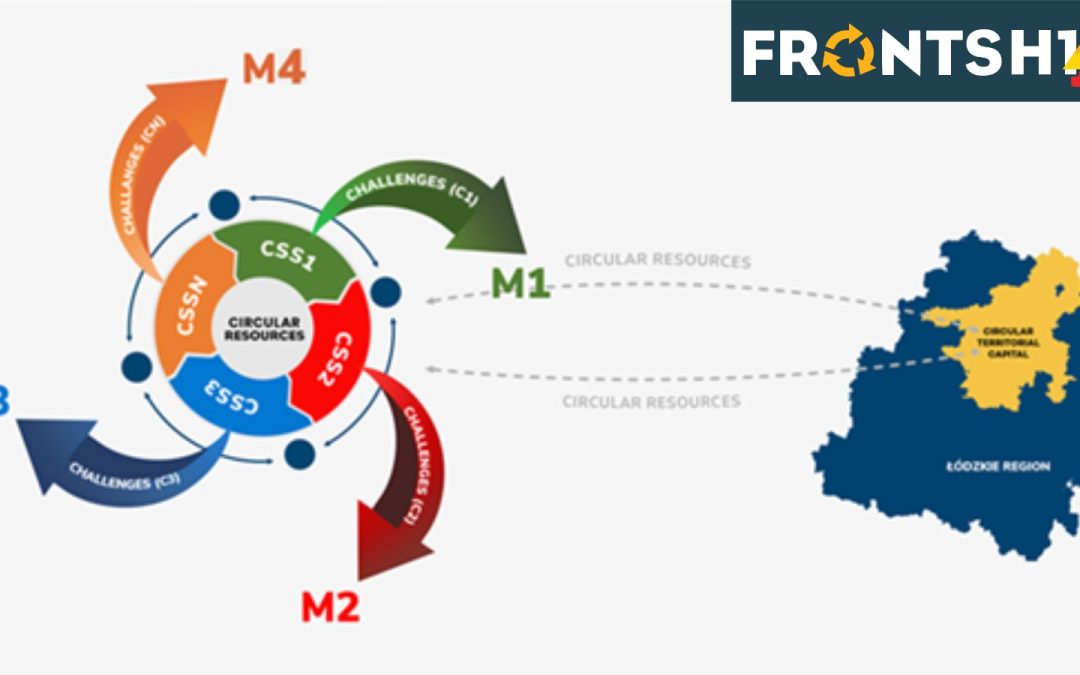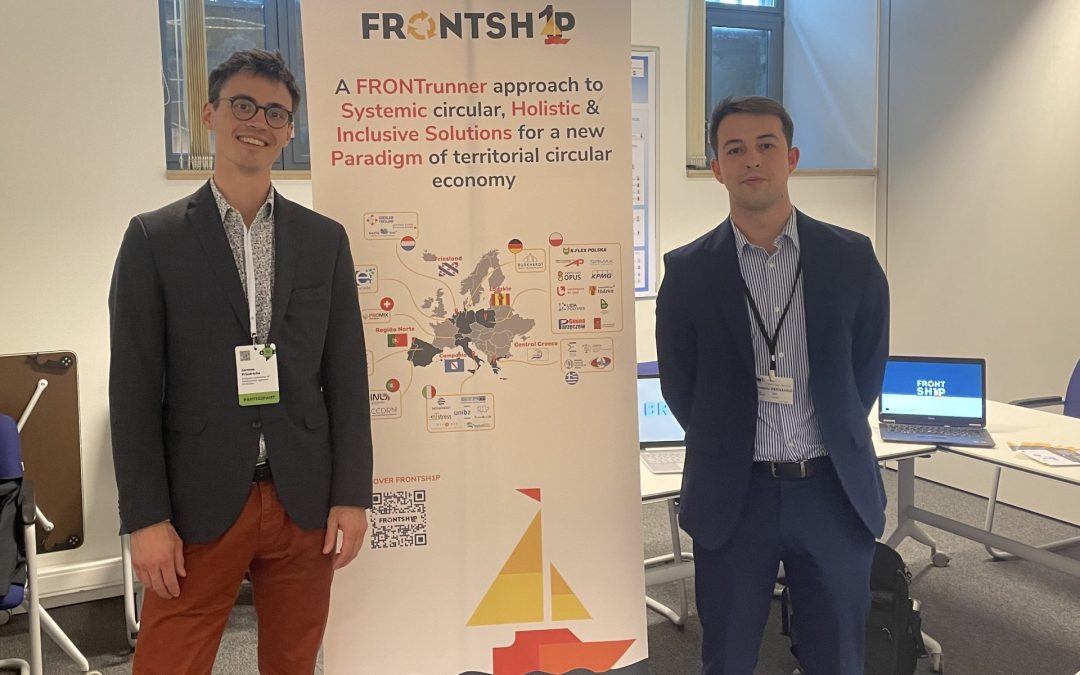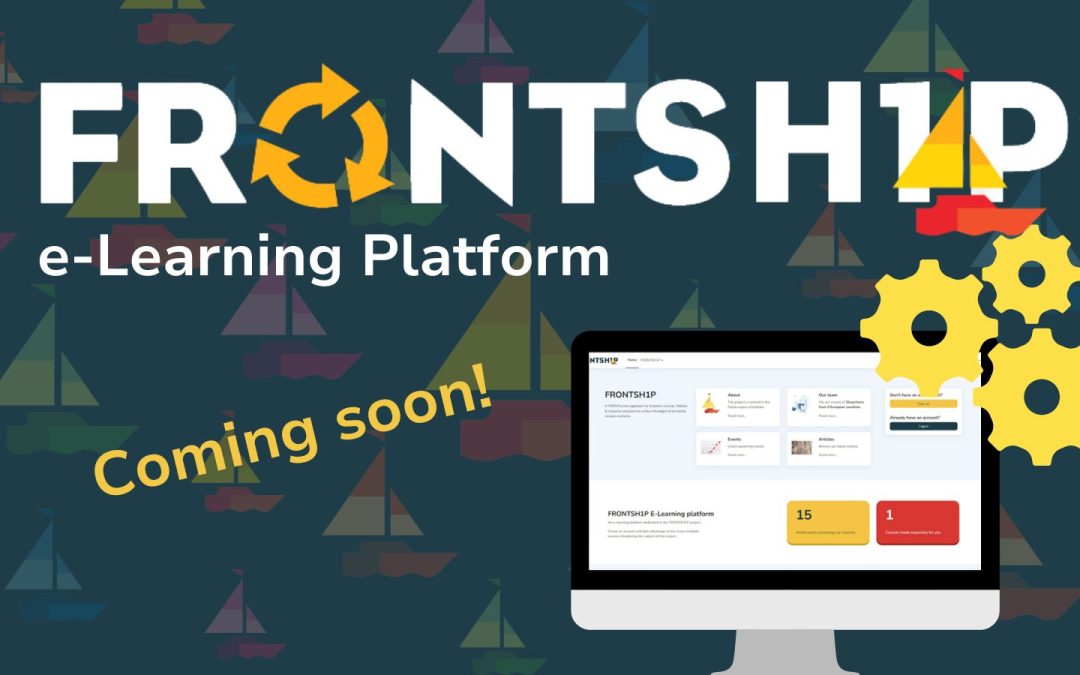Authors: Zbigniew Przygodzki and Jagoda Adamus
The 4th Open Eyes Economy Summit 2024 took place in Łódź, Poland. The main theme of the congress was International Culture of the Regenerative City. Frontship project partners took an active part in discussions and panel sessions. We shared the knowledge developed in the Frontsh1p project. On the first day of the congress, May 14, 2024, Bart Volkers led a special seminar combined with a discussion on good practices in implementing the circular governance model on the example of Circular Friesland and Circular Groningen. The participants of the seminar were representatives of the authorities of the University of Lodz and the Lodz University of Technology. Together we wondered how to most effectively integrate the scientific community to strengthen circularity in the Lodzkie Region.
In the afternoon session, we organized a panel entitled: Cultural determinants of the circular economy. The session was led by Professor Zbigniew Przygodzki (Frontship; UniLodz). The panel participants answered difficult and probing questions, which were met with a lively reaction from the audience. The main aim of the panel was to answer the question: is it true that circular economy revels the new type of culture: a circular organizational culture?
Adam Dyczkowski (Frontship; KPMG) presented the Global leaders’ perspective. He answered the following questions: Is it true? Is the organizational culture of company/ economic leaders changing because of the Green Deal or, more broadly, the SDGs? Does the circular economy create new business products? Are they local products (primarily) or global products? Can the market support circular transformation processes on a large scale?
Fabio Magrassi (Frontship; STAM) presented the perspective of an expert managing international projects. He addressed how, in the context of Green Deal strategy, culture and the creative sector still the driving force of regional development.
Bart Volkers (Frontsh1p; Director, strategic advisor, Circulair Friesland and Circulair Groningen) also played a special role in the panel. Bart shared his knowledge with the participants by explaining the role covered by regional ecosystems in a circular economy.
During the panel, Professor Monika Malinowska-Olszowy (Łódź University of Technology) represented the perspective of scientists and public authorities (being a representative of the Lodzkie Region concil). Monika answered the question: What solutions are needed to intensify the culture of cooperation between the science sector and entrepreneurs, local authorities and local community leaders?
The panel also included social sector expert Łukasz Waszak (Frontsh1p; Center for the Promotion and Development of Civic Initiatives OPUS). Łukasz shared his knowledge about: the role of culture (which in common meaning is correlated with history, understood as traditional institutions: libraries, theaters, museums, etc.). He addressed the most important challenges in shaping a new culture of life – circular awareness among residents.
On the second day of the congress, the panel discussion was led by Professor Grzegorz Liśkiewicz (Frontsh1p; TUL). The topic of the session was: Entrepreneurial culture. During the session, Justyna Trippner-Hrabi (Frontsh1p; UniLodz) continued the topic of the need to build a circular culture among entrepreneurs and entities in the creative sector. The discussion was attended by, among others, Jagoda Adamus (Frontsh1p; UniLodz) and Pamela Jeziorska-Biel (Frontsh1p; UniLodz). The topic of circular organizational culture aroused a lot of interest on the sidelines of the congress.







